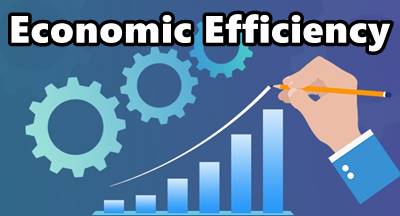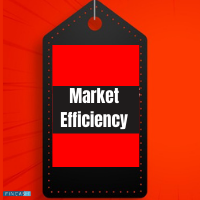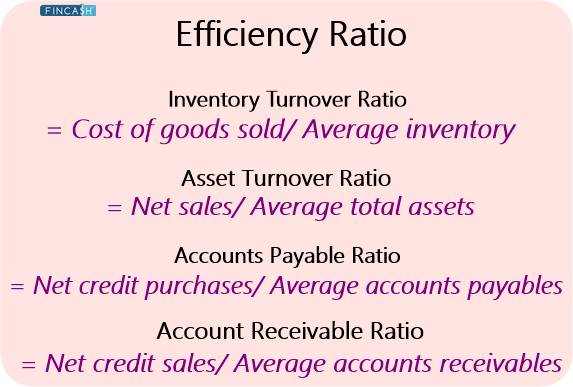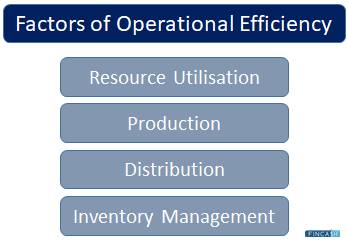
Table of Contents
What is Efficiency?
Efficiency means utilizing the resources to their maximum benefit and encouraging the resources to perform to their highest capacity without Fail. It also means getting more results with minimum input. Efficiency can be measured through a ratio that dictates it through measuring the total benefit to total resources.
Efficiency in finance indicates operating the business with the least expense and churning out the utmost benefit.
Different Types of Efficiency
Businesses' efficiency is used to evaluate their performance along with that of markets and entire economies. In addition to allocative and productive efficiency, there are other forms of efficiency, such as social efficiency, 'X' efficiency and dynamic efficiency.
1. Allocative Efficiency
Pricing of the product is done according to the preference of the consumer in allocative efficiency. This is because the value of the product is dependent on the consumer's requirement. The ratio of this is calculated by marginal cost and marginal benefit. Both need to be equal, and the ratio needs to be P=MC to get the optimum result. It means the price should be equal to marginal cost.
2. Productive Efficiency
Productive efficiency means utilizing the resources, technology, production process to its highest capacity with the least possible Operating Cost. The operators need to cut down the wastage of their resources by taking care of churning out the greatest gain.
Talk to our investment specialist
3. Dynamic Efficiency
Dynamic efficiency means upgrading the production and process of the products and services with time. It means taking the help of technology to optimize the time and energy of human resources and machines. In other words, it implies minimising resource waste as much as possible by keeping up with the times and technologies.
4. Social Efficiency
This means operating at utmost efficiency while taking into consideration social welfare as well. For example, taking up the duty to pay the tax so that the government can work towards the benefit of society.
5. X-Efficiency
This is quite similar to productive efficiency, which means to get the maximum profit with minimum input. But the differentiator between the two is that the productive efficiency depends upon the process and technology while the X-efficiency depends on the motivation of management.
Advantage of Efficiency
Management, shareholders, and other interested parties are always concerned with workplace efficiency. Here is the list of advantages that efficiency brings into an organisation.
- As the primary target of efficiency is to cut down the cost while utilizing the greatest benefits from the resources, it is beneficial for the companies to increase profit and decrease wastage.
- After an increase in profit and decrease in wastage, the company is compelled to grow immensely. This means reducing unproductive sources in the company and increasing the process for gaining profit will eventually lead to expansion of the company's profile.
- Efficiency ultimately leads to satisfaction for the end-user. When a manufacturer or a company chooses to operate efficiently, they are actually working towards making a better future. When resources and technology are used to provide the best results, it eventually leads to the fast production of quality products. In the end, delivering the products in less time is something that benefits a consumer indirectly.
Disadvantage of Efficiency
- Not always efficiency brings advantages to an organisation; sometimes it can be dreadful as well. Here is the list to bring light upon the disadvantages which efficiency can invite in an organisation.
- While experimenting with the latest technology and upgrading the resources, companies often waste a lot of funds. The company suffers an immense loss during the process of being efficient.
- When companies are experimenting with the latest technology and machines and find that it works well, often human resources are terminated. The simple reason for terminating them is to save the cost of human resources.
The Bottom Line
In a Market-oriented Economy with full democracy, it is people, businesses, and the government who need to decide what combination of products and services to create and where to operate along the production possibilities curve. A little bit of Economics, on the other hand, can show that certain options are clearly superior. The concluding note is businesses performance is solely dependent on how efficiently they work, so it's better to master it.
All efforts have been made to ensure the information provided here is accurate. However, no guarantees are made regarding correctness of data. Please verify with scheme information document before making any investment.









